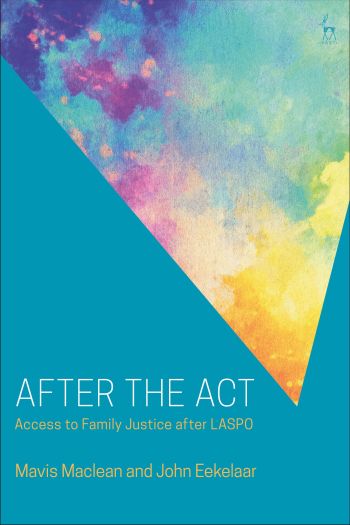We are now closed for the Christmas and New Year period, returning on Monday 5th January 2026. Orders placed during this time will be processed upon our return on 5th January.

After the Act describes the aftermath of the recent removal under LASPO of public funding from legal services in family matters other than in cases of child protection and domestic abuse. Through analysis of the policy context, interviews with key players, observation of services provided by lawyers, students, lay support workers, and the advice sector, the authors describe the work being done and the skills being used in a range of settings.
The book raises questions not only about access to family justice, but about the role of law in family matters in an increasingly post legal society.
Fragmentation of the market in the new services offering information, initial advice, on-line or alternative dispute resolution, but rarely ongoing casework, raises questions about where costs fall and how quality can be assured. Many of these services are forms of private ordering, where outcomes are hard to assess.
Perhaps neither the state nor the individual can afford full legal services where the best interests of any child involved are of paramount importance, and lawyers negotiate to make best use of the resources available. Is it therefore time to consider using lawyers differently, with lay support, to solve problems before they become disputes?